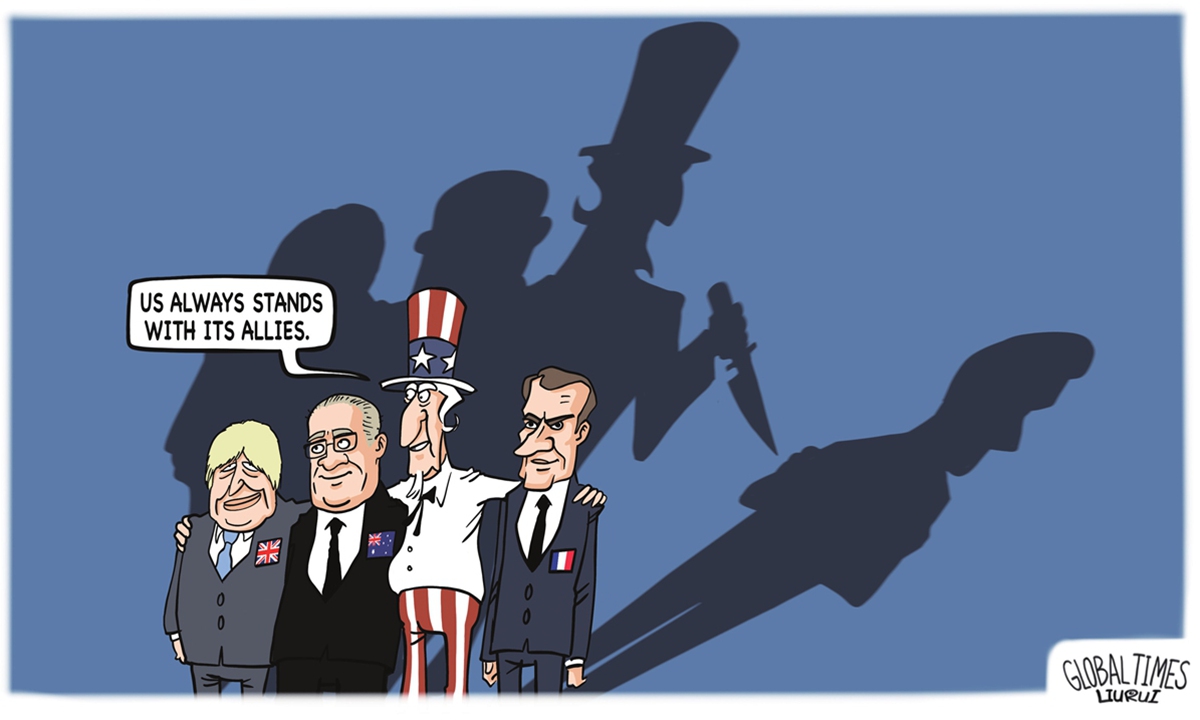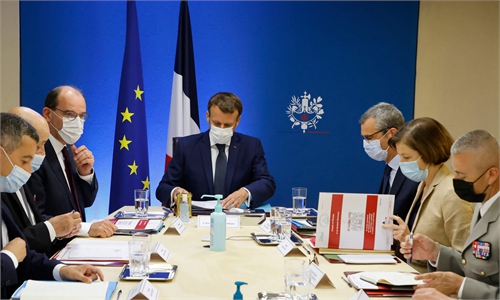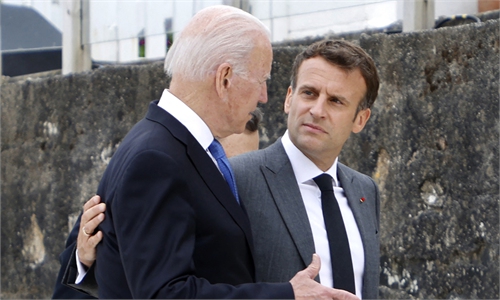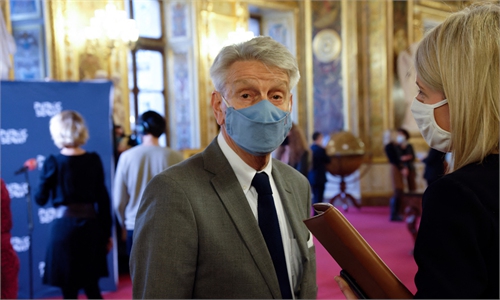
Illustration: Liu Rui
French Defense Minister Florence Parly on Thursday and Friday paid a visit to New Delhi. In an interview with the Times of India, Parly said, "India is our foremost strategic partner to keep this region free, open, and prosperous." At the meeting with Indian Defense Minister Rajnath Singh, the two ministers discussed ways to increase defense cooperation in all sectors.France has its own considerations in ramping up its relations with India. First, in pursuing its interests, France describes itself as an Indo-Pacific country and has formed its own Indo-Pacific strategy.
In May 2019, the country published the French Defense Strategy in the Indo-Pacific, in a bid to strengthen its presence in the region and share a piece of the proverbial pie. France may believe that India, the most important country in the Indian Ocean as well as a key emerging economy, can play the role of a "strategic lever" to help France better achieve its Indo-Pacific strategy.
Furthermore, in the face of a rapidly rising China, to counter and balance its influence, countries including France are actively roping in India, some ASEAN members, as well as Japan, to increase defense cooperation with them.
Third, France is a big arms exporter and its moves to strengthen defense ties with India are also aimed at selling more arms to the Asian country.
Given that India, in recent years, has been moving closer to the US militarily, and formed a quasi-military alliance with the US, many Western and Indian media outlets specially mentioned that France is still angry over the AUKUS when covering Parly's visit to New Delhi. Some netizens even discussed whether Paris is set to offer Barracuda nuclear submarines to India as "revenge" against the US over AUKUS.
Nevertheless, "revenge" may be far too emotional a word, since the international relations are about interests. France's response to AUKUS is relatively strategic and generally mature, but not emotional, as it has adopted a series of diplomatic operations to maximize its own interests.
From the perspective of India, it is a game at play with New Delhi keeping its cards close to its chest regarding its own intentions. As a country with pursuit of major power status, India is trying to take advantage of the competition between China and the US, and between Europe and the US to pursue more interests and find a balance among world powers. India also exploits its military cooperation with France as a leverage to deal with the US.
The United Arab Emirates has informed the US that it will suspend discussions to acquire F-35 fighter jets, but signed an arms deal with France to acquire 80 Rafale fighter jets. A similar interpretation of the situation is that the US deal with the UAE was "hijacked" by France, which ultimately aims to reap the most benefits.
France and the US are arms sales competitors. Against the backdrop of a continued global recession, competition is intense especially in arms sales. In addition, it is the US that has snatched France's deals in the first place, so it is no surprise that Paris is now operating similarly to Washington.
The relations between countries are based more on interests rather than emotion. Europe and the US so far share interests in cooperation, be they economic or in security.
However, that doesn't mean there's no grudge held between them. Both sides also have to think about protecting their own interests, and have fallen into a competitive cooperation. Snatching deals away will definitely have an impact on mutual trust between Europe and the US, as well as on any further joint cooperation.
Even after what has happened, Europe is still keen on cooperating with the US. But it also knows that there's no real difference between the Biden and previous Trump administrations in essence because the US will discard Europe at any given time for the sake of its own interests. As a result, Europe's trust in the US is declining and will become increasingly cautious when cooperating with the latter.
The article is compiled by Global Times reporter Lu Yuanzhi based on an interview with Wang Shuo, a professor at the School of International Relations of Beijing Foreign Studies University. opinion@globaltimes.com.cn



